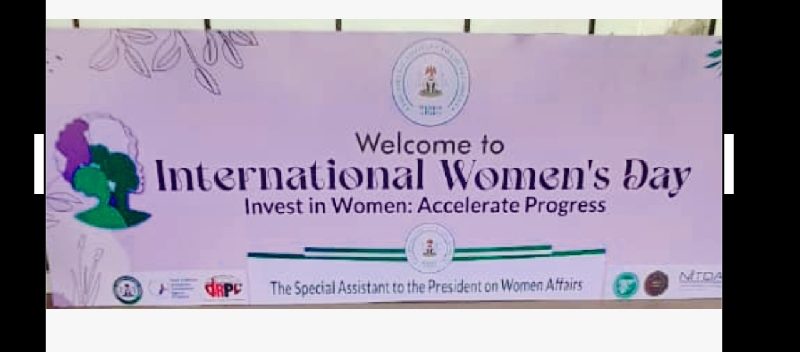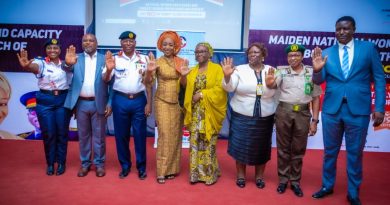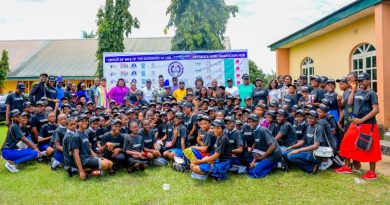IWD: Stakeholders Advocates Gender Responsive Financing For Women
Oru Leonard
Stakeholders have called for the implementation of gender responsive financing to empower women to stem poverty in Nigeria.
They made the call at a one-day stakeholders forum to commemorate the International Women’s Day celebration theme: ” Invest in Women: Accelerate Progress” on Wednesday in Abuja.
Speaking in her welcome address, Engineer Fatima Abubakar-Faruk, Senior Special Assistant to the President on Women Affairs, note the gender disparity in the country despite remarkable efforts put in place to tackle it.
According to Abubakar-Faruk, only 39 per cent of women in Nigeria have access to formal financial services compared to 48 per cent of men.
“Gender-responsive financing holds the key to unlocking the full potential of women in Nigeria.
“By ensuring women have equal access to financial resources, we not only promote gender equality but also drive sustainable development and inclusive economic growth.
“Let us unite, advocate, and take decisive action to make gender-responsive financing a reality in Nigeria.
“Together, we can create a future where Nigerian women thrive, contribute, and lead in all spheres of life,” She said.
Abubakar-Faruk, emphasised the need for women to access credit and women entrepreneurship for to unlock their potentials and nation’s economic growth.
“We must work towards providing more inclusive access to financial services, ensuring that banking and microfinance institutions cater to women’s unique needs.
“We also need to prioritise financing programs that directly support women’s economic empowerment and entrepreneurship.
” We must encourage gender equality in both public and private financing realms. This necessitates a gender lens in budgetary allocation while promoting corporate practices that embrace diversity and equity in investment decisions.
” By supporting organizations that demonstrate gender-responsive practices, we can create an enabling environment for women’s economic empowerment,” she said.
Dr Judith-Ann Walker, Executive Director, development Research and Projects Centre (dRPC) said gender equality, access to education for women and girls, digital literacy and agricultural engagement must be addressed.
Walker, represented by Ruth Agbo, President, Association of Women in Trade and Agriculture (AWITA),said: “dRPC is concerned about Women Economic Empowerment, (WEE).
“We have women economic collectives and the concern is to keep advocating for these issues that affects women and national development.”
Also, Hadiza Bala-Usman, Special Assistant to the President on Policy and Coordination, stressed the need for women to access financial resources, as the will prioritise investments that enrich their families and communities.
Bala-Usman, represented by Zani Dogo said: “The importance of gender responsive financing and gender equality cannot be overstated in our pursuit of sustainable development.
“Nigerian women stand as indispensable catalyst propelling the growth, the progress and the sustainable development of our nation.
“Their resilience, resourcefulness and unwavering commitment to excellence serves as the bedrock upon which our collective aspirations for a brighter future are built.”
Mariya Mahmud, Minister of state, Federal Capital Territory, (FCT), said: “As we reflect on the significant strides made toward gender equality and women’s empowerment, we must also acknowledge the persistent barriers.
“And challenges that continue to hinder the full realization of women’s rights and potential.”




